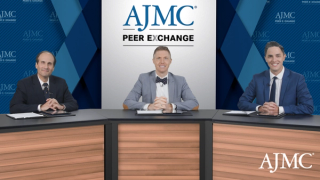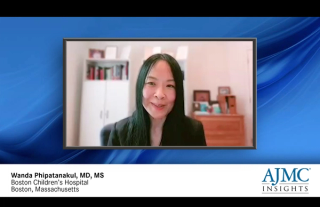
Clinical
Latest News

Latest Videos

More News

Admission Heart Rate Can Be Used as an In-Hospital Mortality Risk Marker in Patients With AECOPD, RF
Results demonstrated a nonlinear relationship between admission heart rate (AHR) and in-hospital mortality in patients with acute exacerbation of chronic obstructive pulmonary disease (AECOPD) and respiratory failure (RF).
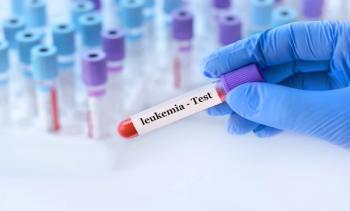
This new analysis provides an optimistic outlook on the future of chronic lymphocytic leukemia (CLL) treatment and discoveries into the background behind CLL transformation into Richter syndrome.
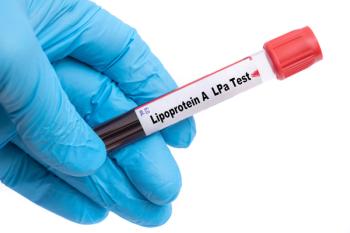
Following these positive 36-week results, Silence Therapeutics plans to announce 48-week results of the ongoing ALPACAR-360 study in Q2 of 2024.

Study findings show that scores on the Psoriasis Area and Severity Index and the Dermatology Quality of Life Index are correlated in patients with psoriasis across several continents, but factors affecting each of these scores are different across countries.

Telehealth, which increased 63-fold from 2019 to 2020, has potential for managing and delivering care to patients with rheumatic diseases.
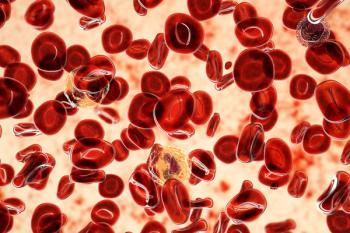
Compared with matched controls, patients with myeloproliferative neoplasms (MPNs) had a higher risk of developing thrombosis, hemorrhage, and leukemic transformation, according to a longitudinal cohort study.

Research found that maternal loss of a partner or older child, as well as the loss of a close relative due to unnatural causes in the year before or during pregnancy, were linked to a heightened risk of heart failure in offspring.

Amy S. Paller, MD, chair of the department of dermatology at Feinberg School of Medicine at Northwestern University, discussed using systemic therapies to treat children with atopic dermatitis (AD).

Most private health insurers have yet to publish criteria for when they will cover postpartum depression drug, zuranolone; state lawmakers are increasingly opposing health care mergers that they believe do not serve the public interest; Medicaid extensions made in 2021 led to a 40% decline in postpartum lack of insurance.

Robert Gabbay, MD, PhD, discusses the early intervention at the asymptomatic stages of type 1 diabetes characterized by autoimmune antibodies and gradual blood sugar elevations.
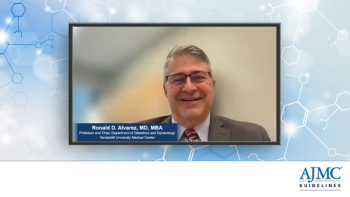
A medical expert discusses treatment decision-making and modalities for ovarian cancer, including palliative care and hospice.

Ronald D. Alvarez, MD, MBA, gives an analysis of the MIRASOL and DESTINY-PanTumor02 trials, including a comparison of study arms and discussion of HER2/neu targeting.
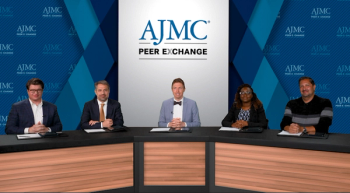
The panel provides an overview of the various Philadelphia chromosome-positive acute lymphoblastic leukemia (Ph+ ALL) treatment phases, highlighting the important discussion around inpatient versus outpatient care.

The panel discusses optimal strategies for screening and detecting Philadelphia chromosome-positive acute lymphoblastic leukemia (Ph+ ALL) in patients across different treatment stages.

Novo Nordisk is working with authorities in several countries to tackle counterfeit versions of popular diabetes drug semaglutide (Ozempic); Amylyx’s controversial amyotrophic lateral sclerosis (ALS) drug failed to help patients in a large follow-up study; disruptions from the Change Healthcare cyberattack are costing health providers as much as $1 billion a day.

Increased interest in screening for the genetic risk of type 1 diabetes (T1D) has been driven by factors including the introduction of immune interventions.

A considerable number of patients with atopic dermatitis (AD) and limited health literacy, especially older individuals, experienced impaired health-related quality of life.

Venetoclax and azacitidine was found safe, but further randomized trials are needed to determine the full extent of the combination’s efficacy in myelodysplastic syndromes (MDS) and acute myeloid leukemia (AML).

Investigators used a predictive model factoring in lymphopenia, elevated SIL2R level, extranodal involvement, and a positive hepatitis panel to determine risk for febrile neutropenia among patients with diffuse large B-cell lymphoma (DLBCL).

While dietary interventions do not significantly change the body composition of patients with rheumatoid arthritis (RA) and spondyloarthritis (SpA), they can reduce the risk of cardiovascular disease (CVD).

The patient continued to test positive for COVID-19, but intravenous immunoglobulin eventually led to his recovery.

The FDA added another indication for semaglutide (Wegovy), expanding its use to reduce the risk of cardiovascular death, heart attack, or stroke in adults who have cardiovascular disease (CVD) and overweight or obesity.

Patients with diabetes whose providers received advice from remote, virtual interdisciplinary rounds had a greater 1-year reduction in hemoglobin A1c than comparable patients.

Preventive measures can reduce the risk to newborns, but careful monitoring is necessary, the authors said.

Self-management (SM) among older patients with chronic obstructive pulmonary disease (COPD) is moderately low, and frailty and depression may partially mediate the relationship between social support and SM in these patients.






